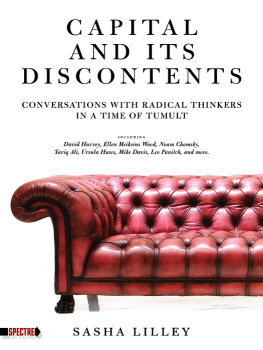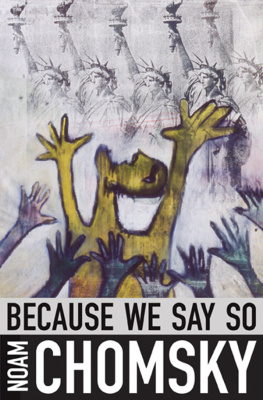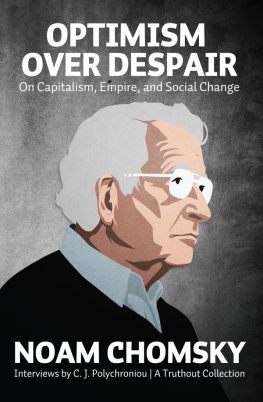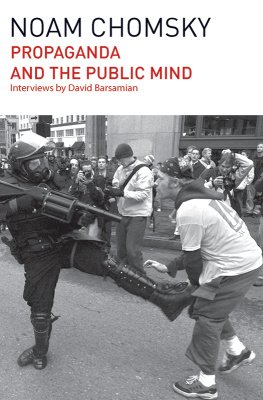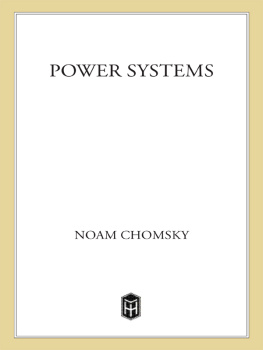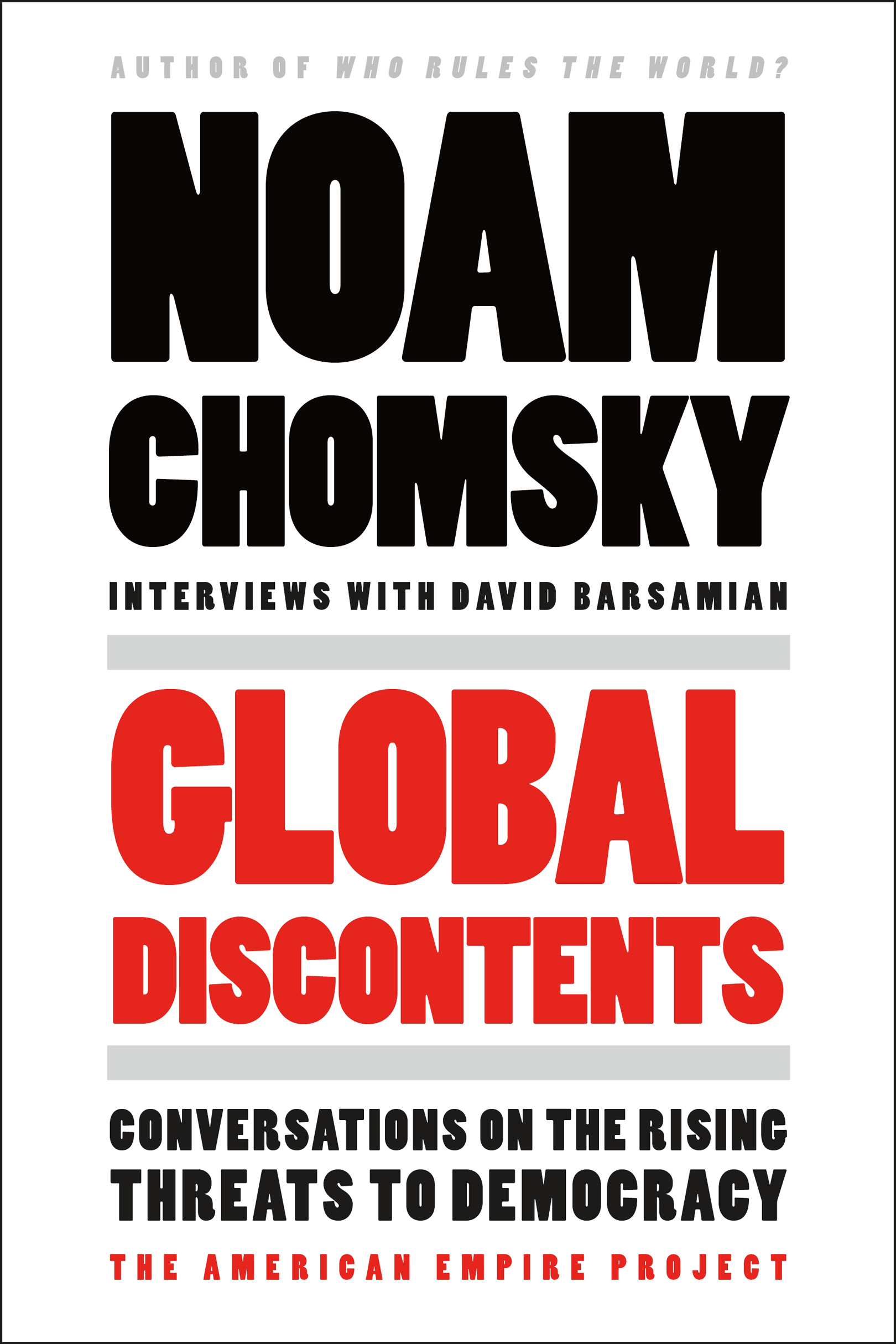Contents
Guide
Pagebreaks of the print version
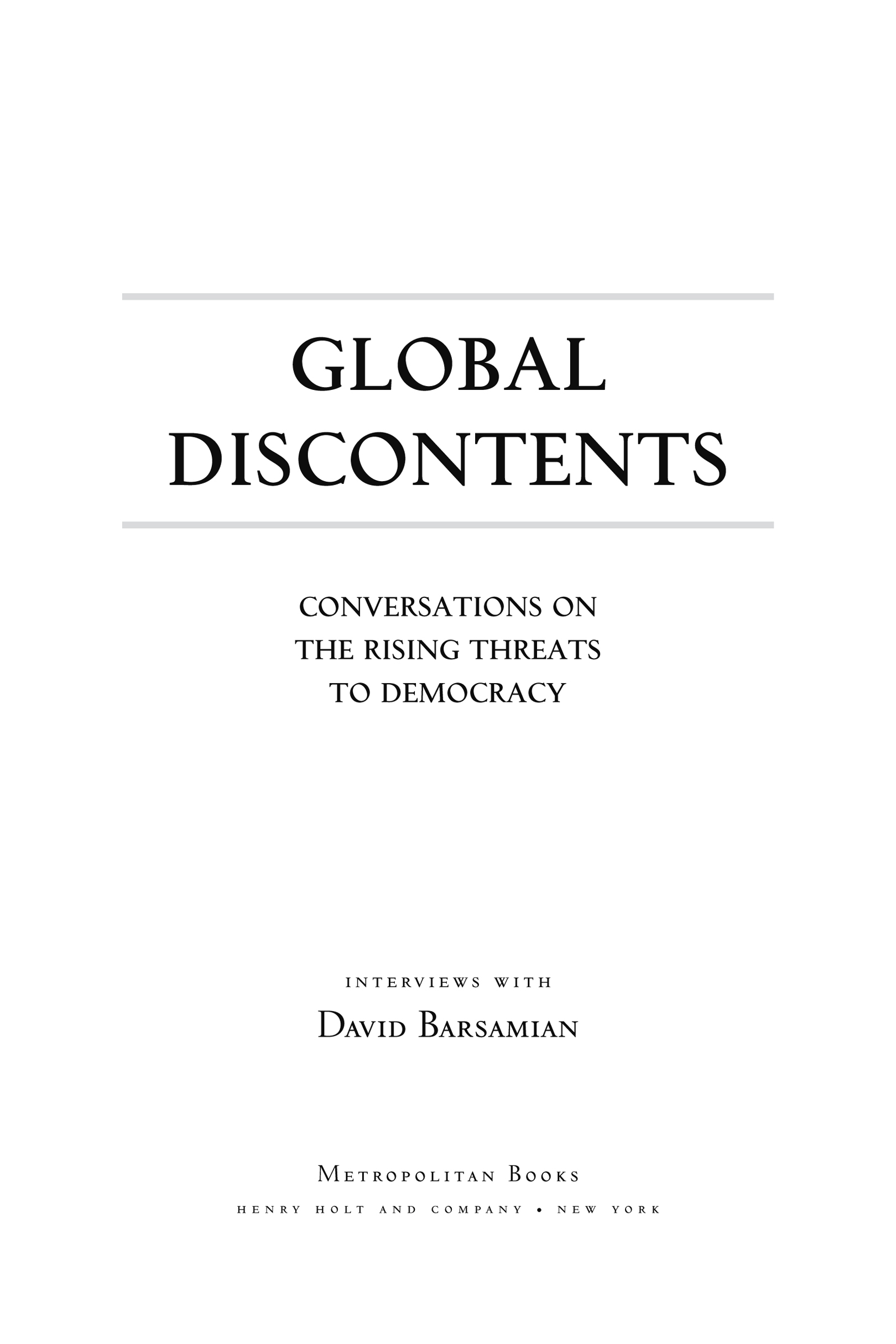
The author and publisher have provided this e-book to you for your personal use only. You may not make this e-book publicly available in any way. Copyright infringement is against the law. If you believe the copy of this e-book you are reading infringes on the authors copyright, please notify the publisher at: us.macmillanusa.com/piracy.
C AMBRIDGE, M ASSACHUSETTS (J UNE 20, 2013 )
Edward Snowdens revelations of widespread state surveillance of Internet and telephone communications have caused some consternation here in the United Statesand around the world. Were you at all surprised by the governments electronic dragnet?
Somewhatnot a lot. I think we can take for granted that if technology or other means of control and domination are available, then power systems are going to use them. Take the recent revelations about the relationship between the National Security Agency (NSA) and Silicon Valley. Silicon Valley is a synonym for the commercial use of surveillance. The NSA is going to Silicon Valley for help, because the commercial enterprises have been doing this already, on a great scale, and they have the technological expertise. So apparently, a private security officer was brought to the NSA to help them develop sophisticated techniques of surveillance and control.
The technology is available. You can use it for making money, and you can use it for controlling peoples attitudes and beliefs, directing them toward what you want them to do. So they do.
In fact, anyone who has paid any attention to history should not be in the least surprised. Go back a century to the U.S. war in the Philippines. The United States invaded the Philippines, killed hundreds of thousands of people, and finally suppressed the resistance. But then they had to pacify the population. There are very good studies about this, particularly by Al McCoy, a Philippines historian. He shows that the U.S. was very successful in pacifying the population, using the most advanced intelligence-gathering and surveillance techniques of the daynot our technology but what you had a century agoto sow distrust, confusion, and antagonisms, standard devices of counterinsurgency. He also points out that it was just a few years before these techniques were used back home. The Woodrow Wilson administration used them in their Red Scare. Thats how it works.
Just like with drones. Another recent admission, hardly a surprise, is that the Federal Bureau of Investigation (FBI) has been using drones for surveillance. You use them against those you designate as enemies, and you very quickly adapt the same technology at home. And theres more to come. For years, the military and the security system in general have been trying to develop fly-sized drones, which can get into your living room to see and record everything thats happening. The robotics labs have gotten to the point where theyre about ready to deliver this technology.
If you look abroad, drones were at first used for surveillance. Later, they were used for murder. And we can expect that domestically, too. If there is a suspect, maybe a person with the wrong idea, maybe someone like Fred Hampton, instead of sending the Chicago police in to murder him, maybe you can murder him with a drone. We can expect that.
Fred Hampton being the Black Panther activist in Chicago who was murdered, along with another Black Panther, Mark Clark, in 1969.
That was a real Gestapo-style assassination, which stayed undercover for the longest time.
If a technology is available, a system of power is going to make use of it. Back through history, thats what you find. So to be surprised is to have blind faith in power systems that somehow theyre not going to use whats available to them as a way of controlling, dominating, and indoctrinating people. But, of course, whether commercial enterprises or a state, they will. Yes, the particulars can be surprising. I didnt know that they had the PRISM program, a secret tool that allowed NSA officials to gather search histories, e-mails, chats, and other data directly from companies like Google and Facebook. But you cant really be surprised at the general phenomenon.
To take just one more example: the MIT Technology Review had a news item describing how corporations are becoming wary about using computers with components manufactured in China, because apparently its technically possible to design hardware that will detect everything the computer is doing. Naturally, they dont add the next point, which is that if the Chinese can do it, the United States can do it much better. So whats so safe about using computers with hardware manufactured in the United States? Pretty soon, well have every keystroke sent off to the presidents database in Utah.
Youve noted that there is a generational gap in responses to these NSA revelations.
I havent seen a study, but what I senseat least, from discussion and what Ive readis that younger people are less offended by this than older people. And I suspect its part of a cultural shift thats taking place, among younger people particularly, toward a kind of exhibitionist culture. You put everything on your Facebook page: what youre doing, what youre wearing, what youre thinking. Everything is exposed. And if everything is exposed, who cares if the government sees it?
Do you see this trend toward a surveillance state as part of a drift toward totalitarianism? Or is that too strong a term?
Its a move in that direction. But there is a considerable gap between collecting data and having a way to use it. One of the more positive aspects of this, if you want to put it that way, is that the authorities probably dont have the competence to make use of the material they are collecting. They can make use of it for particular purposes. If theres this huge database in Utah, which is going to have massive information on everybody sooner or later, if theres some person they want to go afterthe next Fred Hampton, lets saythen they can get plenty of information about that person, and it may enable them to control or maybe even kill that person. But short of that, its not clear that they can do very much.
We saw this in the past. The FBI, using much more primitive means, had tons of data about everyone. We all knew back in the 1960s, and ever since, that every activist organization was probably infiltrated by government spies. In fact, people pretty quickly learned that if you wanted to do anything sensitive, you did it with an affinity group, not even with your comrades, because one of them was probably a police informant. But in many ways, the government couldnt do much with the data they gathered. They could do certain things, like harming a particular individual. But if you look at, say, the trials of the Vietnam War resistance, it was amazing what the FBI couldnt do.
I followed those trials closely. The main one was the so-called Spock-Coffin trial.
That involved Dr. Benjamin Spock and Reverend William Sloane Coffin Jr., who were accused of conspiring to help young men resist the draft .
I was an unindicted co-conspirator, so I sat in on the trial. After the prosecution rested its case, the defense met to decide what to do. The original thought had been, Its an open-and-shut case, so just say that everyone is guilty. Dont deny it. In fact, proudly proclaim it. Put on a political defense. But the defense lawyers decided not to put on a defense at all, because the prosecutions case turned out to be really weak. People were standing up at Town Hall in New York and saying, We hereby conspire to undermine the Selective Service Actbut the government just didnt pay attention to that. Instead, they spent all their time trying to figure out where we were getting our instructions from. Was it Hungary or North Korea? What were we really doing? It couldnt be what was said in the open. So they just missed everything.




